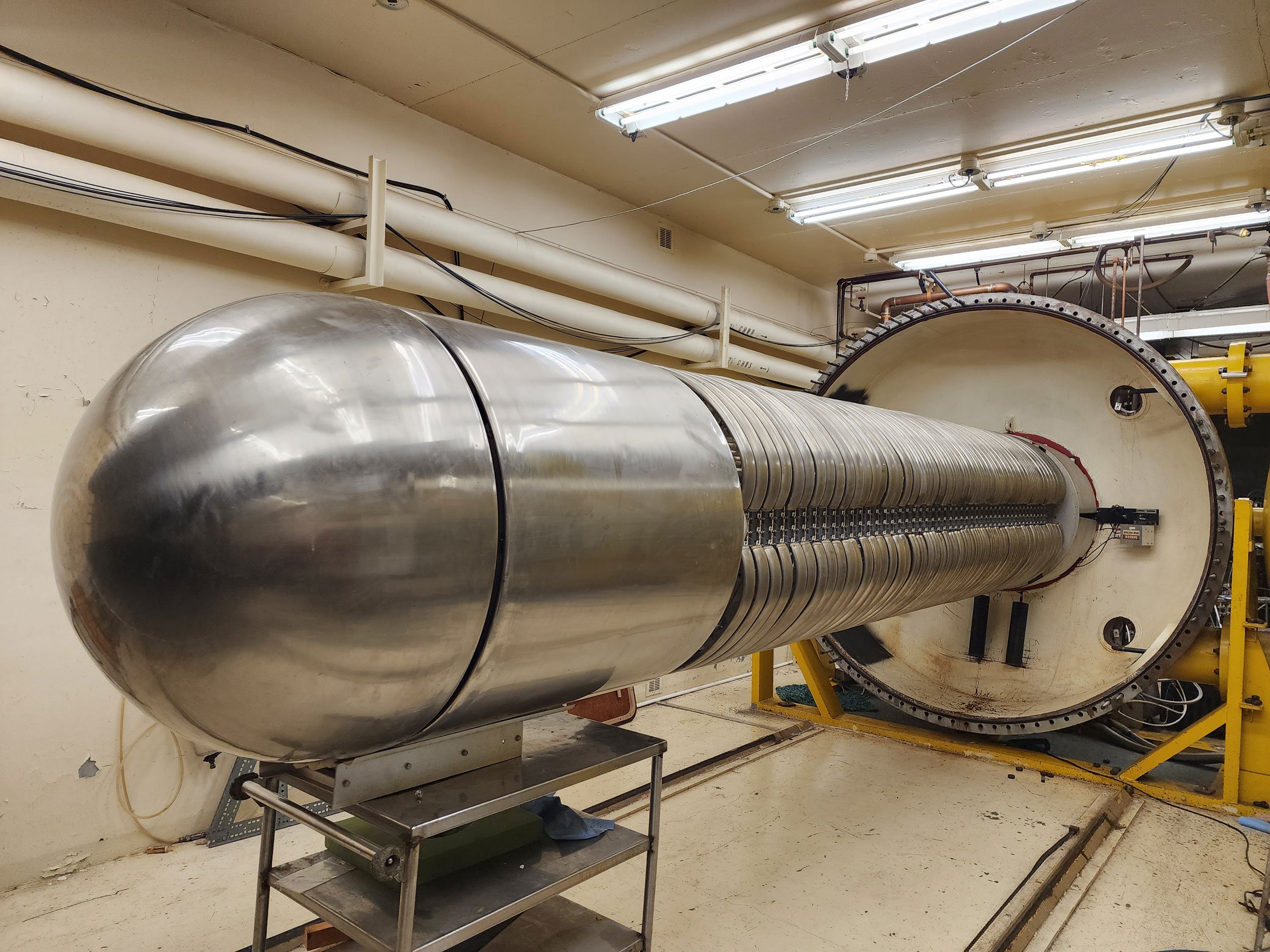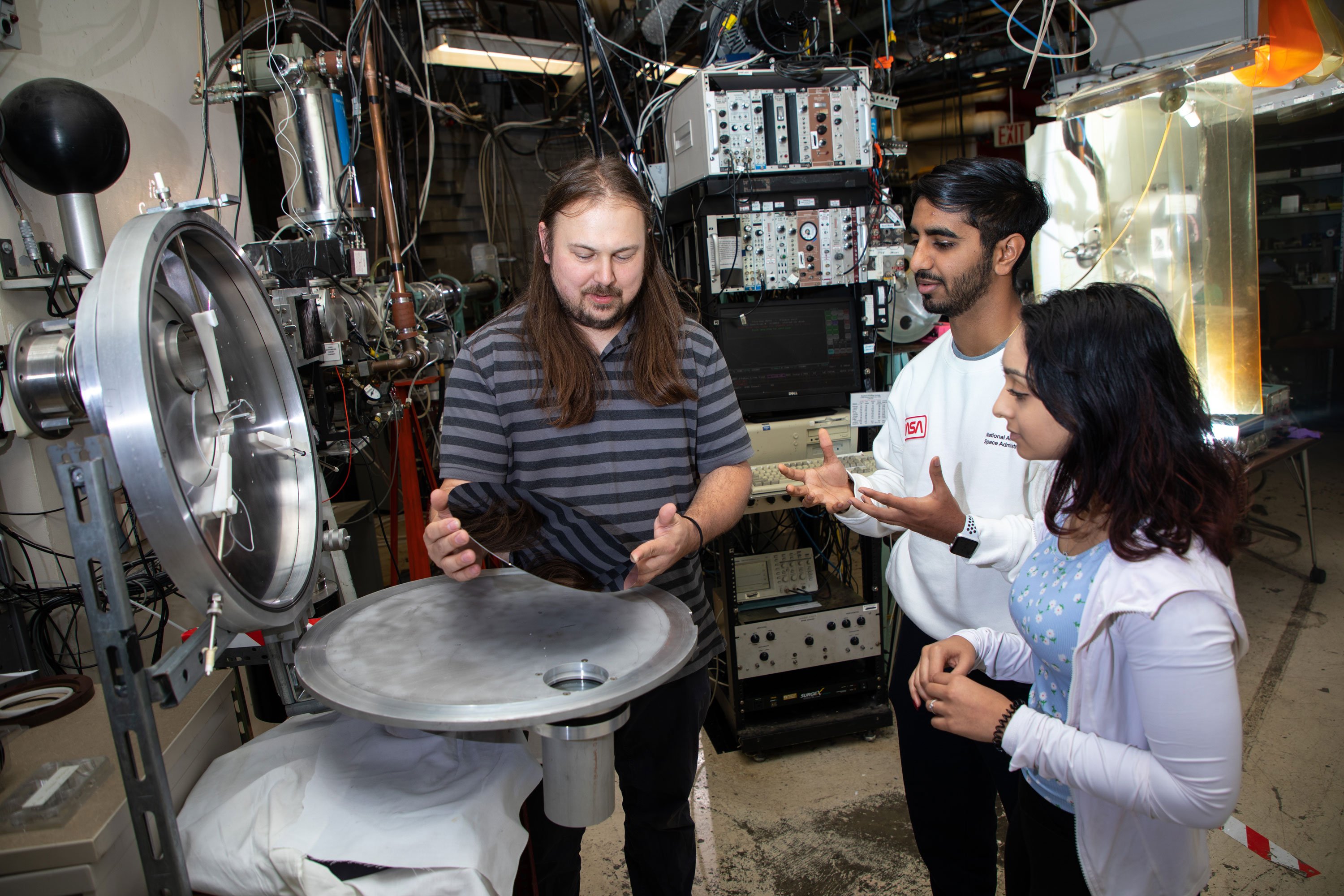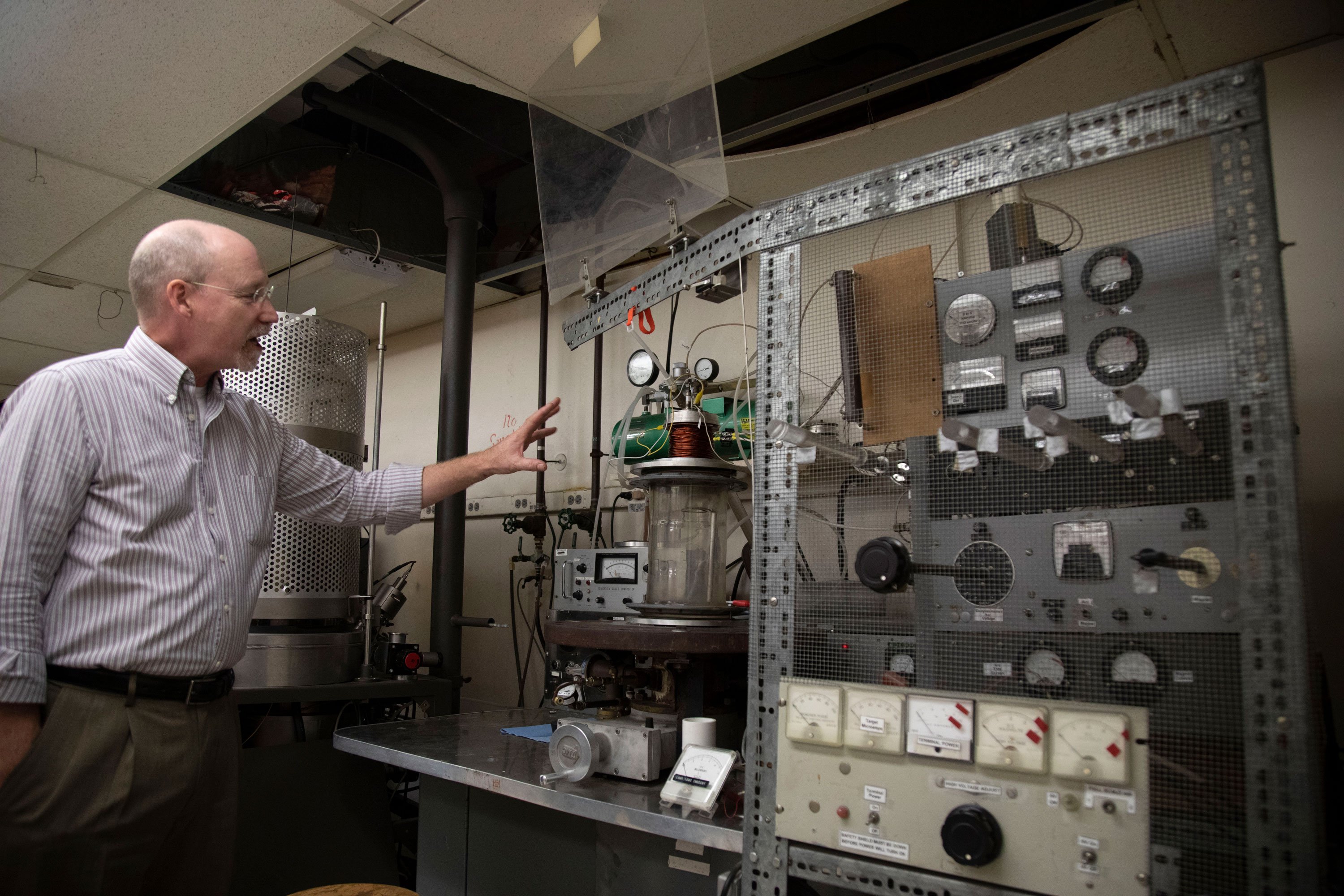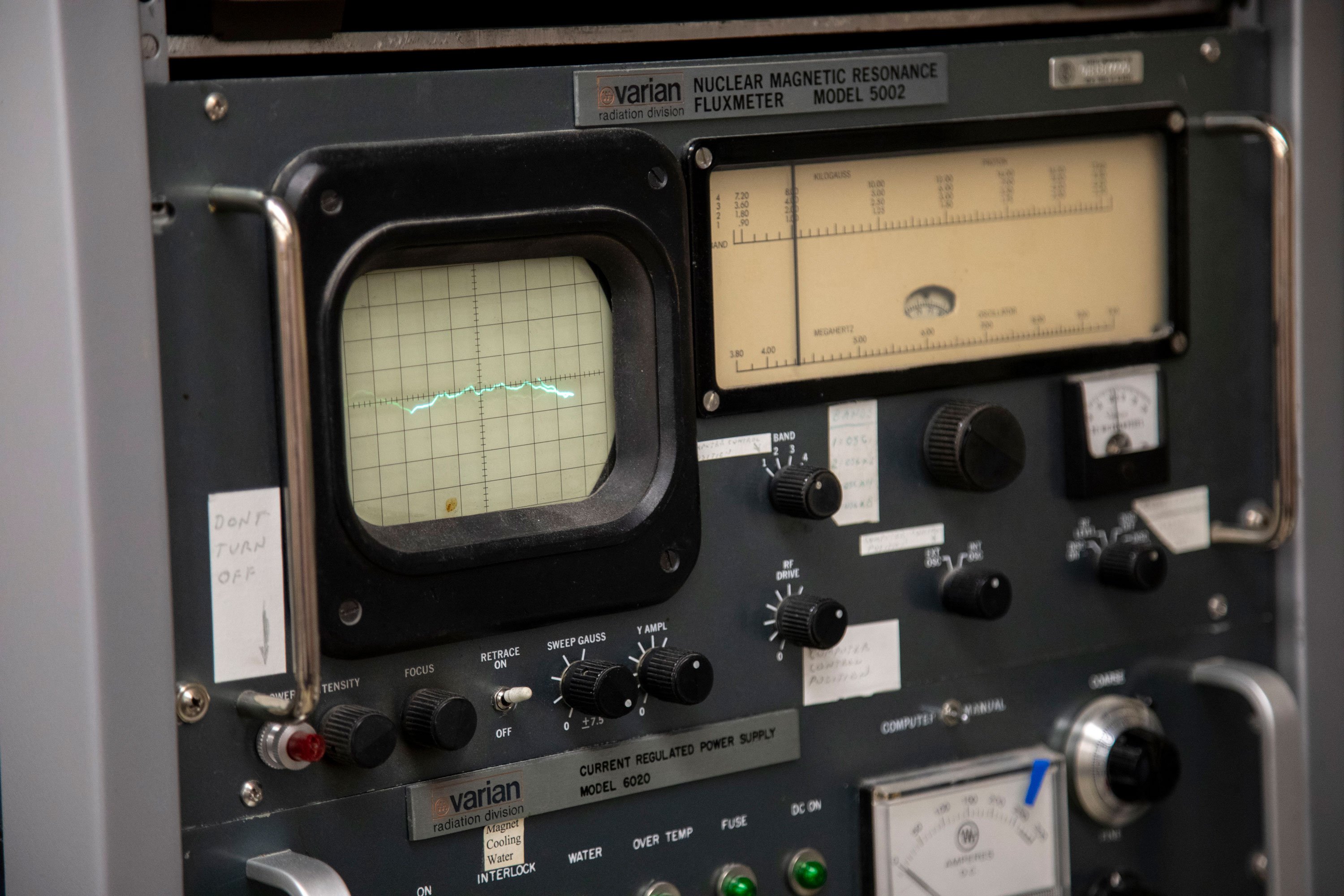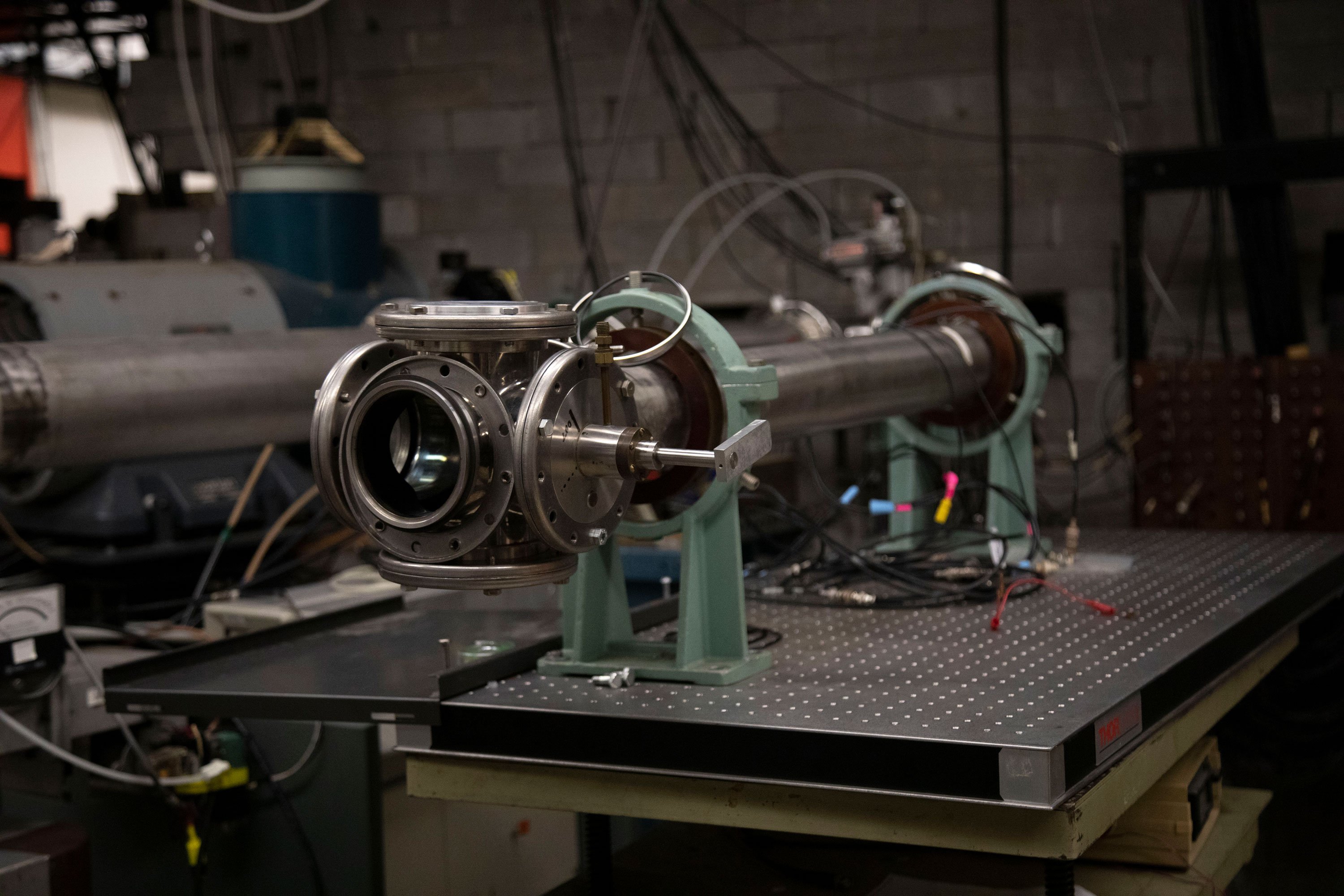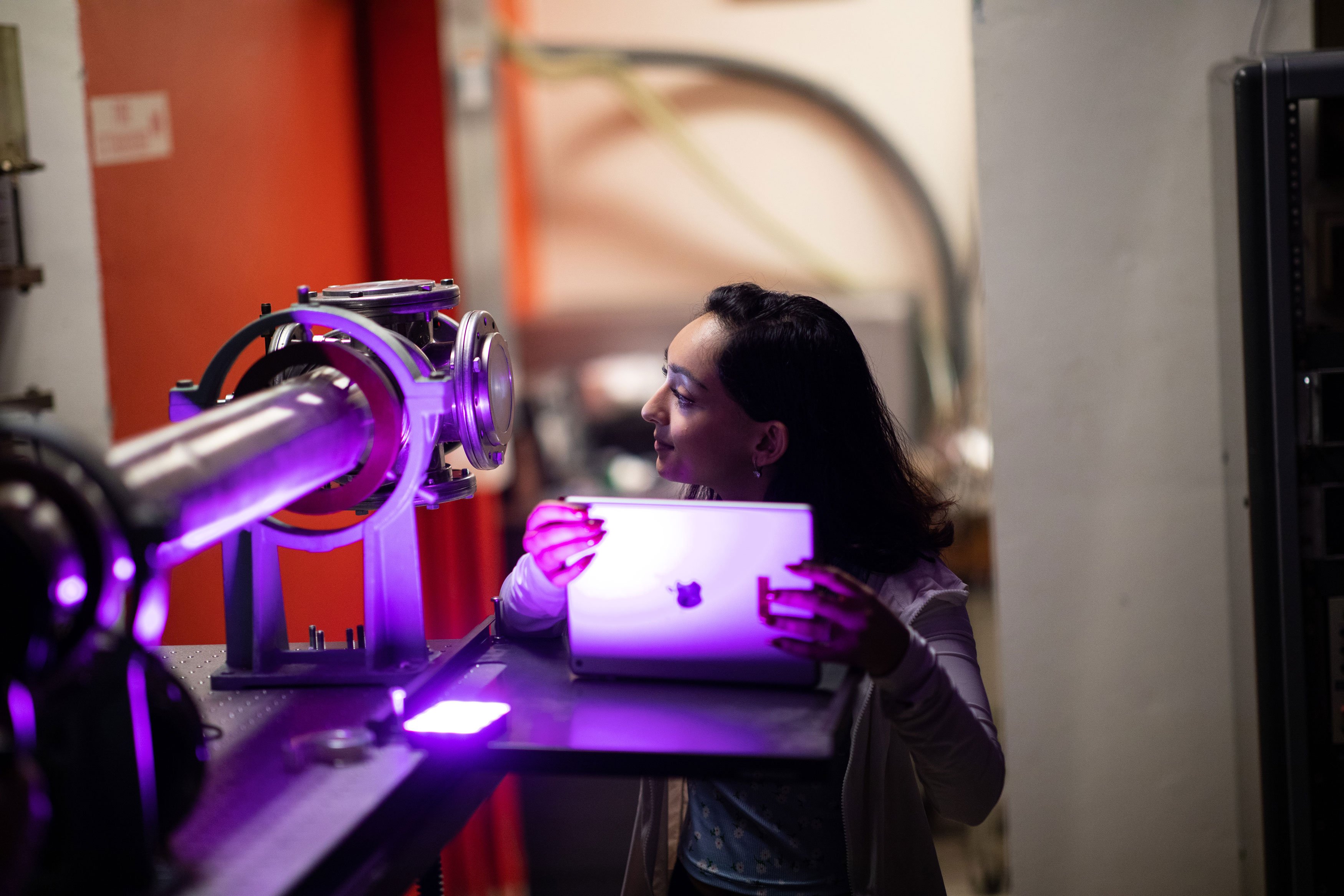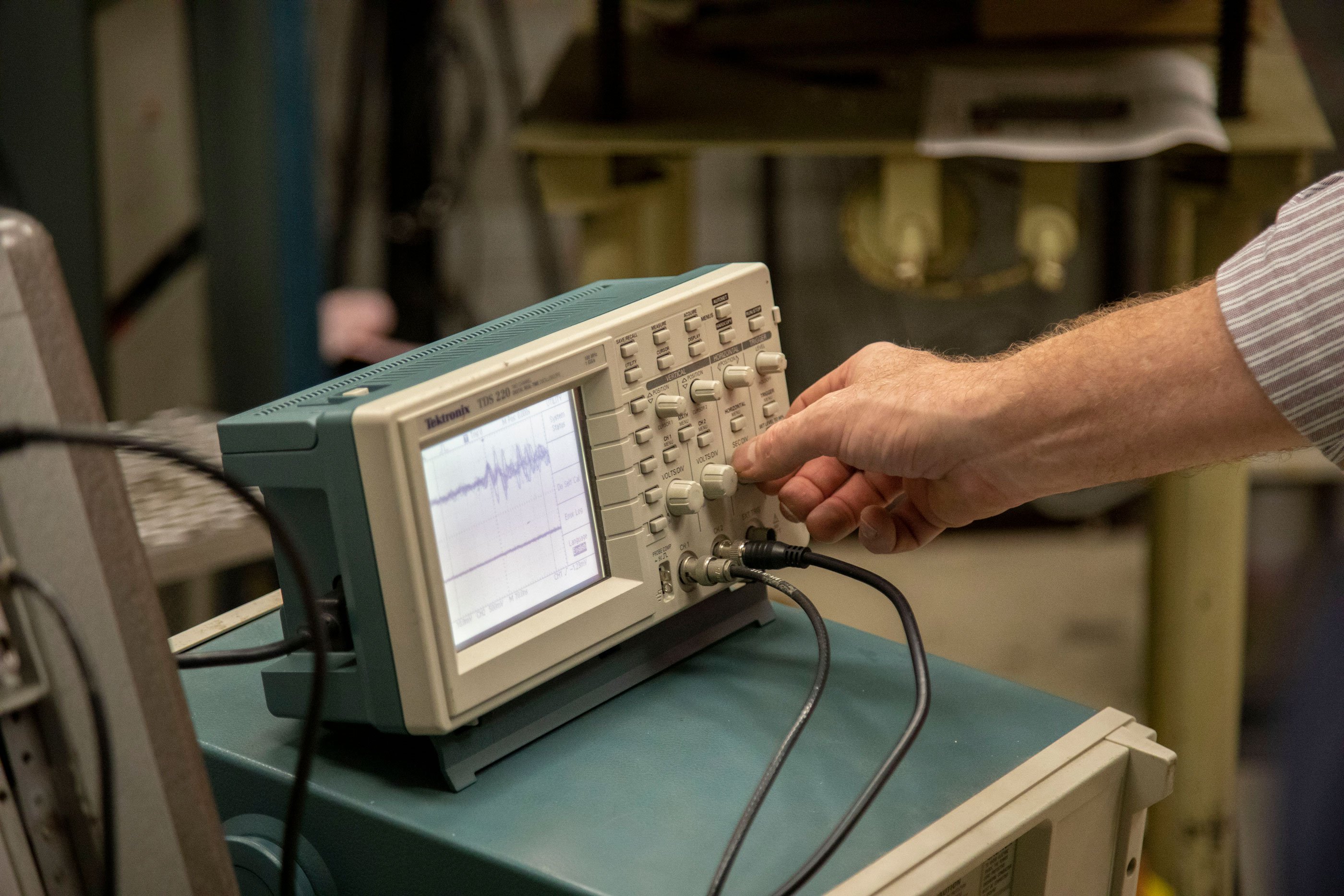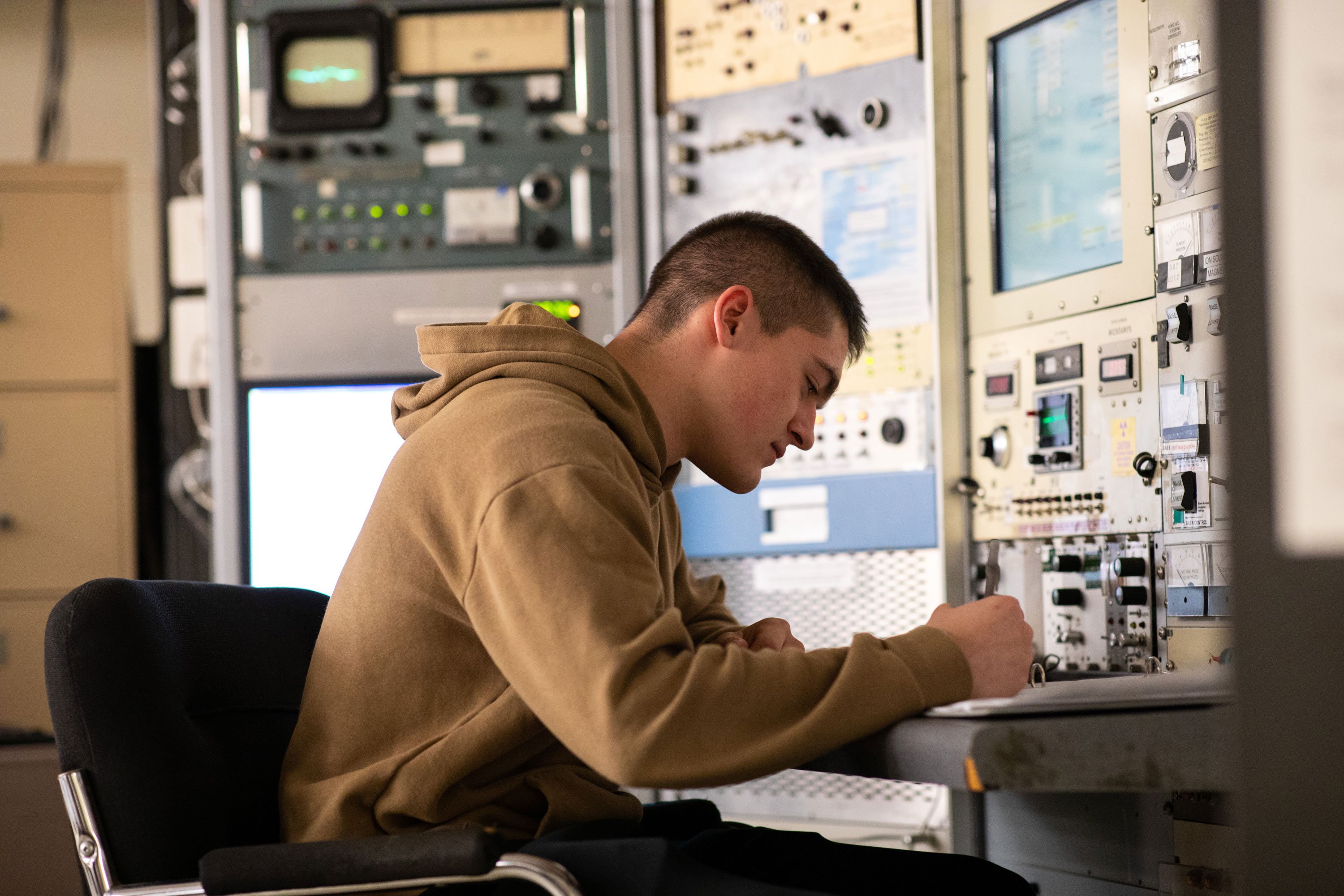Dynamitron Accelerator
The RDI Dynamitron particle accelerator can generate a large variety of ions, in a singly or doubly charged state, and deliver a beam of ions to the sample being investigated. Such ion beams are then refined, focused and sent to one of the six experimental stations using different beamlines.
Each of its six beam lines is equipped with a different set of sample environmental chambers, instrumentation and detectors to facilitate ion implantation into a substrate or to its surface. The trajectories and flux of ions scattered in different directions by the sample are determined and analyzed to learn its properties.
Dynamitron can produce a beam of singly charged ions with energy ranging from 400 keV to 4 MeV. It's also capable of accelerating doubly or multiply charged ions at energies exceeding 8 MeV.
Standard Modes
The standard set of ions available at the Dynamitron are 1H+, 2D+, 3He+, 4He+, 9B+, 12C+, 14N+, 15N+, 16O+, 18O+, 19F+, 20Ne+, 22Ne+, 28Si+, 31P+, 35Cl+, 37Cl+ and 40Ar+. Additionally, ions of Kr and Xe may also be available, upon request.
Please contact the laboratory at [email protected] or 518-442-4480 before reserving beam time to confirm available ions.
Requests for ions that are not currently available will result in a $1,200 installation charge.
Please review the Usage & Fees page for additional information.
Special Modes
Lab staff can discuss with users and agree on an appropriate charge for beams of other types of ions. Operations involving new, hazardous or highly reactive materials will result in an additional $2,000 start-up charge.
Special modes also require a minimum charge of five days (40 hours).
Please review the Usage & Fees page for additional information.
Extrion Ion Implanter
The Extrion 400 Ion Implanter, made by Varion, provides a wide range of ions generated from gas and solid source materials at energies from 50 to 400 keV.
It can implant sample sizes of up to 75 mm at temperatures ranging from near liquid nitrogen (-196 degrees Celsius) to over 500 degrees Celsius. The room temperature end-station can handle sample sizes from 50 to 200 mm in diameter.
Best Practices for the Extrion Ion Implanter
To save money, researchers may elect to mount multiple samples together for simultaneous implant — to the extent allowed by the IBL’s and/or the researchers’ sample holders.
Depending on the sample holder, the area scanned can be as small as a 2-inch diameter and as large as an 8-inch diameter. Rates are not affected by the number of samples mounted or areas scanned.
Additionally, please note that:
-
Researchers are charged for high price materials supplied by the IBL, such as gold and platinum.
-
A user is billed for the number of hours used, from equipment start to equipment shutdown. If equipment breaks down or malfunctions, researchers are not charged for servicing.
-
Researchers must undergo additional training to use the Extrion unassisted and pay a fee for additional training/assistance.
For additional information, please review our Usage & Fees page.
Additional Tools
E-Beam Evaporator
The E-Beam Evaporator is only available to UAlbany faculty, staff and authorized students who use other IBL services.
Evaporation materials are usually supplied by the IBL, but researchers may supply their own material if IBL staff deem the material acceptable.
Researchers are charged for high priced materials supplied by the IBL, such as gold and platinum. Material charges are determined at the scheduling time.
Samples may be mounted together for simultaneous coating — to the extent allowed by the sample holder size. Rates are not affected by the number of samples mounted.
The evaporator must be controlled by a trained and authorized operator. Training is available for a fee.
Review our Usage & Fees page for additional information.
Poster Printing
Poster printing is only available to trained UAlbany faculty, staff and authorized students who use other IBL services. Personal usage is not allowed.
The HP poster printer requires a username and password, which eligible individuals can obtain from an advisor who already has a printing account.
Posters are billed according to the image size sent to the printer. Please see our Usage & Fees page for additional information.
Printer-related errors can be refunded upon request, but the user will be billed for any errors that are not due to a printer problem.
If a user cancels a print job when it is partially complete, due to user error, they may request a refund for the unused paper length.
Payment for printing services must be made via Research Foundation account transfers. No other form of payment is accepted for poster printing.
X-Ray Fluorescence (XRF)
The XRF tool at the IBL can subject samples to low level x-rays ranging from 15 keV to 50 keV. It is available to any user with the correct training for use at the IBL facility. The unit is portable and can be brought to any site outside the IBL but must only be done so with a member of our staff, so please plan appropriately. The scanner itself can give 2 separate analysis methods: a qualitative spectra, which allows an analysis to be made by traditional fitment methods by its manufactures software; or a quantitative analysis to determine concentrations of known elements in the sample. For more information on the Bruker Tracer 5G XRF scanner visit their website.



